MARINE POLLUTION
1. What is marine pollution?
Marine pollution is understood as the infiltration of harmful materials into the ocean, negatively affecting the livelihood of marine creatures and ecosystems. 70-80% of marine pollution originates from land. Did you know that emissions from humans’ in-land activities, whether released into the atmosphere or the water, all eventually end up in the ocean?
2. What causes marine pollution [1]?
Litter
Litter intentionally released by humans, or carried by water, travels from land into the ocean. Part of it decomposes easily or sinks to the bottom. However, the majority of solid wastes, especially types of plastic, can float for miles and exist for years in the ocean. Litter can kill marine creatures in many ways: Animals easily get stuck in pieces of debris or abandoned fishnets, injured, suffocated, or have litter overtake their living environment. Unfortunate fish that accidentally consume litter can choke, then die of hunger or intoxication. Large pieces of debris can sink, then crush and suffocate marine creatures living on the seabed.
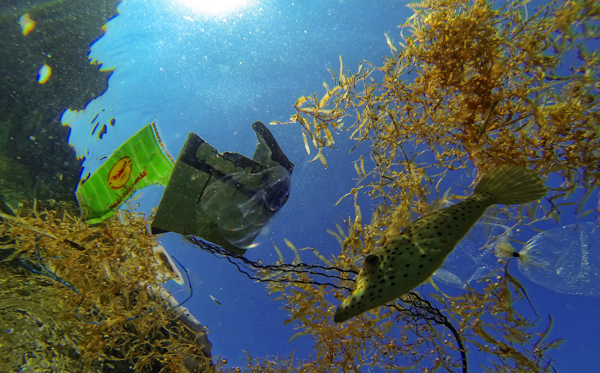
Floating debris. Photo from US Embassy's "Our Ocean, One Future"contest.
Wastewater, toxic chemicals and nutritions
Pollution can directly infiltrate the ocean through wastewater. Most wastewater originates from toilet sewage, bathrooms, cooking, cleaning, washing,... In many parts of the water, wastewater is not processed, or is processed underwater, then released into channels, rivers and streams then finally the ocean. For example, according to a report by World Wildlife Fund, 80% of urban wastewater released into the Mediterranean Sea is unprocessed [2]. Wastewater can cause over-fertilisation which leads to the overgrowth of algae, and thus a decrease in oxygen in the water, destroying the lives of marine plants and animals. Furthermore, they can bring bacteria that can cause diseases in marine creatures. [3]
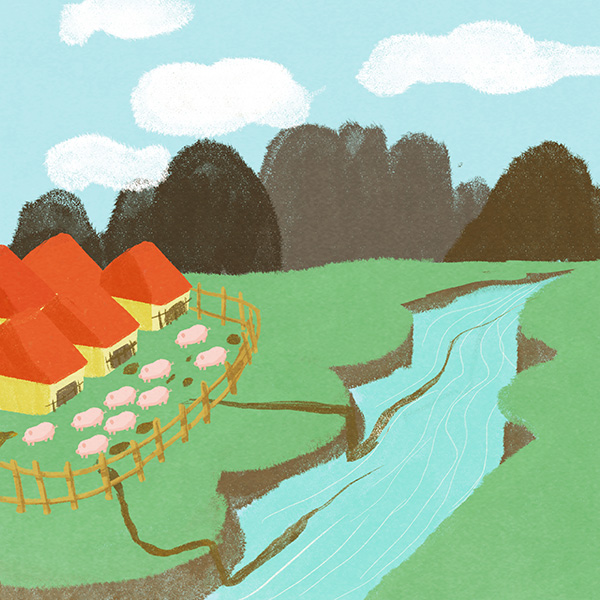
Toxic chemicals released into the ocean also impact the marine environment. These include chemicals and heavy metals (lead, mercury, dioxin, industrial chemical compounds, radioactive substances, etc) They mainly come from industrial, agriculture and other human activities, mostly from natural gas extraction, mining near the sea, electricity generation (thermo-electricity using fossil fuels, nuclear power, etc) or follow the stream of rain or rivers into the ocean. Many dangerous toxins sink into the sedimentary layer at the bottom of the ocean, then poison marine creatures that accidentally eat them. They then attack marine creatures from the inside, causing deaths, diseases, genetic mutation, degenerated reproductive health… These toxins are indigestible and become more concentrated as they travel along the food chain. Consumers higher up in the food chain - fish, birds and mammals - take the largest damage.
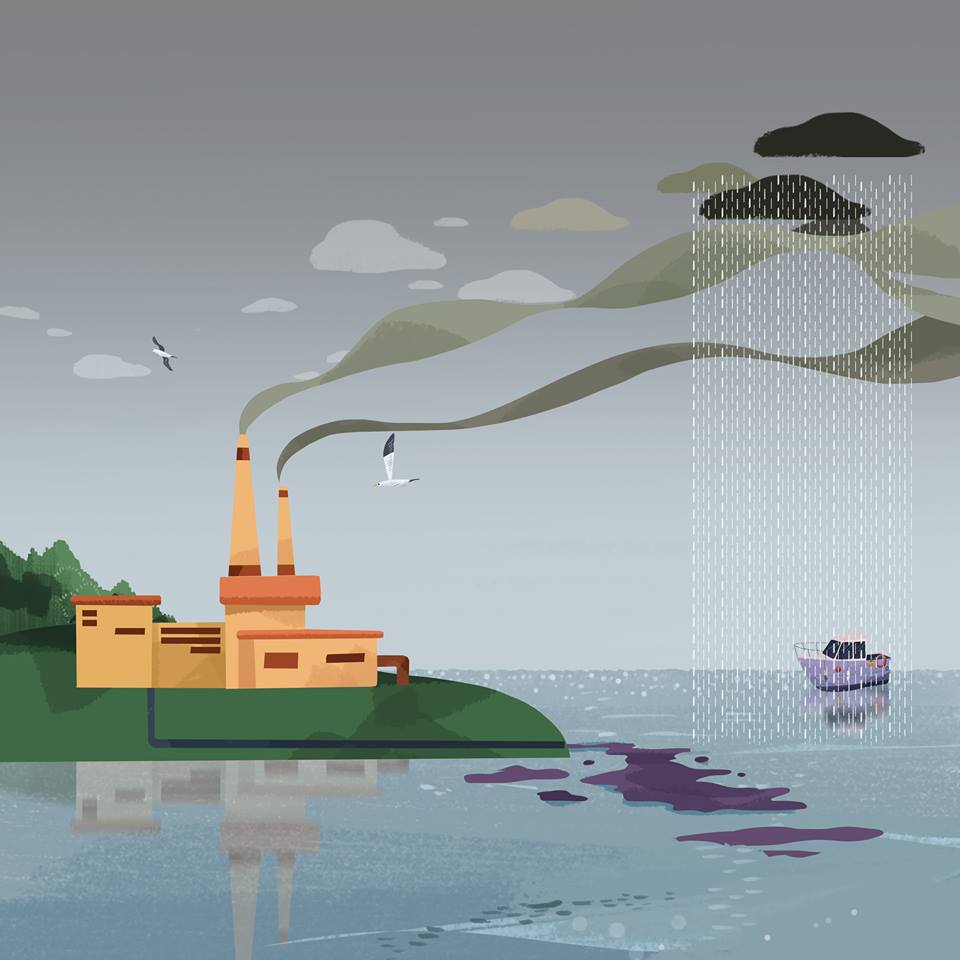
Chemicals discharged to ocean from industrial zones.
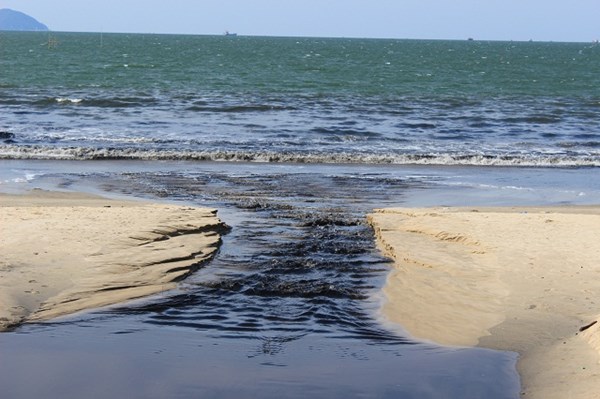
Wastewater discharged into ocean in Da Nang. Photo from DONRE [4]
However, not only toxins cause damage to the ocean. Concentrated nutritions at high levels such as phosphors, nitrate, ammonia, organic compounds… can also cause pollution and disrupt the balance of the marine ecosystem. These chemicals are often released from food processing factories near the sea (including seafood processing factories), or from fertilisers on pastures and farms… into rivers and then the sea. The extraneous level of nutritions in the water causes algae and other plants to grow quickly, and explode in population. The blooming and wilting can drain the oxygen and cause “death zones” in shallow or slow-moving water. This phenomenon is also called “red tide”.
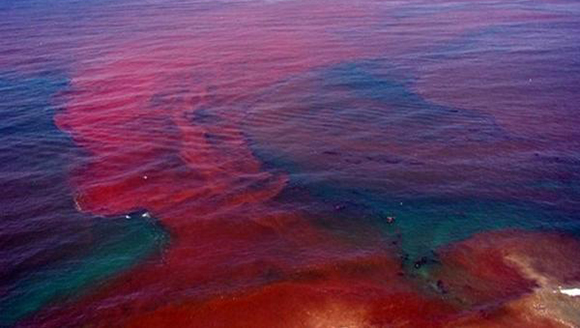
Red Tide. Photo from Space Coast Daily, Wall Street OTC Image
Oil spill
An oil spill is a combination of the worst effects of the two types of pollution above. When covered in oil, marine plants and animals are quickly suffocated. Oil sticks onto the feathers of birds and mammals, causing them to lose their heat insulation ability. Oil in contact with skin and eyes causes serious infections and possibly blindness. Oil when inhaled by animals can cause organ damage, paralysis, loss of reproductive ability, or death.
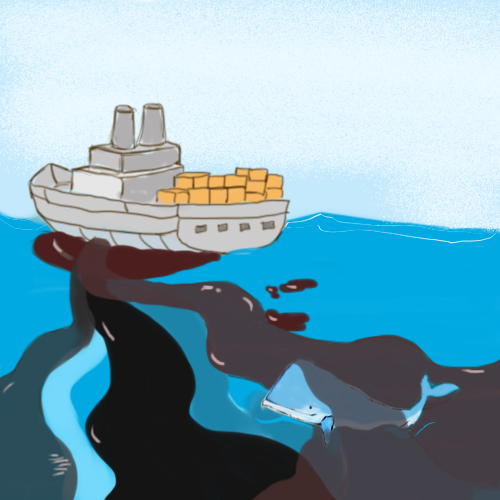
Each year, in America alone, there are about 300,000 to 750,000 tons of oil spilled into the seas. [5] Oil spills caused by oil containers are often very serious and receive much publicity, but they are only the culprits of a small part of oil-pollution in the ocean. The majority of oil in the ocean comes from motors, machines, containers, in-land factories, and sewage.
Noise pollution
The deep ocean seems calm, but in reality, man-made noises are constant and ever-increasing. Due to marine traffic, oil and gas extraction, usage of communication systems and echolocation, the noise level in the ocean has increased by 2 in the last 60 years. It has had an especially negative effect on marine mammals.
In the ocean, where distance is long and sight is short, many species rely on sounds for communication, orientation, and scouting the surroundings. These vital activities are becoming more difficult because of manmade noises interfering with animals’ hearing abilities. Noise pollution cause seals, sea lions, and whales to be unable to search for food or escape from predators, chase them from their area of feeding and reproducing, and separating the baby from the mother. Recent researches attribute the phenomenon of whales getting stranded and dying to the loss of hearing and disorientation caused by high noise level.
3. What effects does marine pollution have?
Marine pollution seriously affects the environment as a whole and our life quality:

As mentioned above, debris, chemicals and oil spill directly affect the health and wellbeing of many marine creatures. In Vietnam, water, sediments and creatures at certain seas have shown signs of higher concentration of heavy metals (lead, arsen, mercury, cyanide) and highly durable toxic organic materials, which poses a threat to the marine environment. Most recently, wastewater from the factory compounds of Formosa Corporation in Ha Tinh has created a chemical compound with the ability to attract two main pollutants, phenol and cyanide, which floated along currents, causing devastation by mass-killing fish at the seabed in 4 provinces in Central Vietnam in April 2016.
Marine pollution also decrease the oxygen level in the seawater. Most matters released into the ocean is hard to decompose and will exist in many years. Decomposition of these matters uses oxygen in the seawater. Therefore a high amount of litter, chemicals,... that needs decomposing will decrease the oxygen level and in the long run, take away the oxygen vital to the existence of marine creatures.
Often, marine pollution can also impact the food chain and food network under the sea and on land. Toxins in the ocean concentrate in bodies of animals along the food chain, and diffuse in higher consumers: when big fish eat small, poisoned fish, they also become poisoned. When birds, animals,... eat these big poisoned fish, toxins will also concentrate in their bodies.
For humans, poisoned or diseased plants and animals are impossible to be consumed as food. Many marine creatures poisoned with mercury, lead, dioxin, etc… can cause danger to humans if consumed for an extended period.
Marine pollution also causes a significant spiritual damage. The scenery and foul smell coming from polluted seas, and the awareness that many creatures have gone extinct from humans’ carelessness, can also cause us, especially those who live at the seaside, to feel dispirited.
4. What can we do?
We do not need to live at the seaside to help reducing marine pollution. Each of us can contribute through simple everyday activities:
- Save water - freshwater and clean water are valuable resources. Do not waste water! You can be more mindful in the shower, turn off taps when you are not using them and avoid using too much water to flush the toilet

- Avoid using toxic chemicals in your daily life: reduce the amount of cleaning agent you use, avoid herbicides and pesticides,... in gardening.
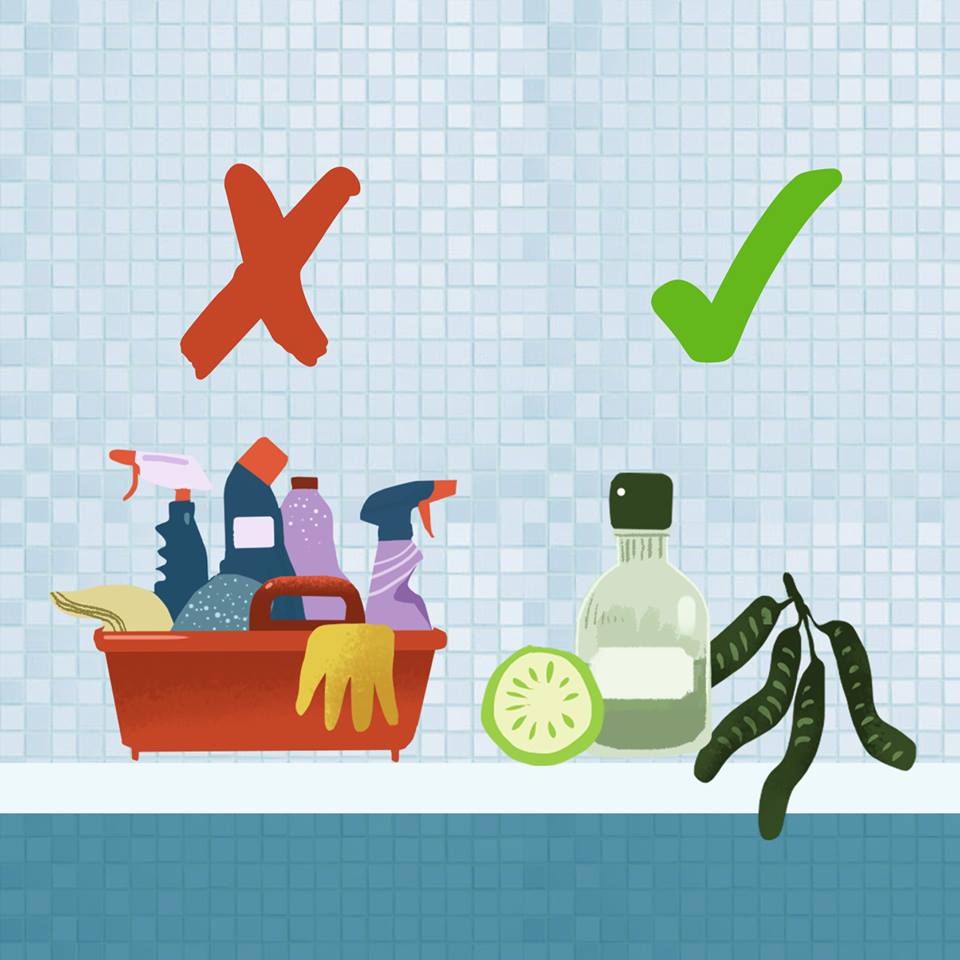
- Avoid dumping unused cooking oil into the drain. Put food waste into the garbage can instead of releasing it into the sewage.
- Always clean up after yourself, especially while walking on the beach, or near rivers and lakes.


